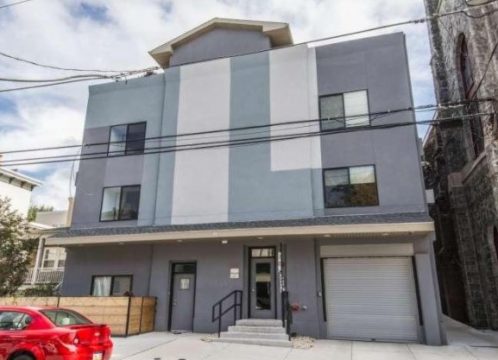Cryptocurrency in Real Estate: Manayunk Condos Being Marketed to Bitcoin Buyers
In what very well could be a first for the Philadelphia marketplace, four condos in Manayunk’s Falcon Condominium development are being marketed specifically to Bitcoin buyers.
Bitcoin, a digital “cryptocurrency” and payment system, has been slowly gaining some traction among Philadelphia-area businesses, including boutique shops, food trucks and, in the case of Philadelphia Brewing Company and Cavanaugh’s Rittenhouse, even beer.
The condos in Manayunk are being offered at a starting price of 795 bitcoins, which might seem like a drop in the bucket, but the current exchange rate is hovering around $430 to a single bitcoin. That puts the price of the 2-bedroom plus den units at $342,374 and change.
“This is just a different approach to offering real estate,” said Susanna Kunkel, listing specialist with Keller Williams and Philly Living, who is marketing the available units. “I want Bitcoin buyers to know they’re respected just like a cash buyer. They basically have the same buying power as the cash buyer.”
While the tech scene in Center City has taken off, thanks to co-working spaces like Benjamin’s Desk and Indy Hall in Old City, Kunkel said these condos in Manayunk, not exactly top of mind destination for techies, offer an “alternative venue” to entrepenuers who want to work from their home.
Built on the site of the former Falcon Polish Social Hall on the 3800 block of Terrace Street, the remaining condo units range from 2,024-square-feet to 2,293-square-feet of space, and include a “flexible floor plan” that can be used as a work and meeting space. Their proximity to trails, entertainment and bars on Main Street, and even parking are big draws as well, mentioned Kunkel. Those interested in touring the space can do so at two open houses this month on January 17 and January 31 from 1pm to 3pm.
So, is buying with bitcoin the wave of the future in real estate?
Marc Shaw with World Wide Land Transfer, a title insurance company in Trevose, Pa, said that real estate transactions using bitcoin can get a little tricky, and still need to involve traditional currency at some point. “The biggest hurdle is we as a title insurance company need to comply with what is essentially called the ‘Good Funds Rule,'” wrote Shaw, in an email. “We need to have money in our accounts to cover all escrow items. If the buyer and seller agreed to it such a transaction can certainly be consummated.
“As a practical matter, the seller would have to own the home free and clear, because a lender would be unlikely to accept bitcoin to pay off a mortgage balance. However, the completed the transaction in a bifurcated fashion is possible. Where the buyer paid the seller a portion in bitcoin and the rest in dollars that flowed through escrow as per the usual transaction. ”
Additionally, a third party can also convert the volatile digital currency into dollars to make the deal whole, but it’s technically not paying in straight up bitcoin. “At some point, the deal must include real funds.” added Shaw. “The money needs to be converted.”
According to a November report from CNN Money, power players have invested $1 billion in Bitcoin-related tech startups. Ragnar Lifthrasir, president of the International Bitcoin Real Estate Association (yes, that’s a thing), told Overseas Property Professional Today that he’s bullish on Bitcoins changing the real estate game: “Bitcoin is the greatest technological breakthrough for real estate since the wax seal 400 years ago. Using Bitcoin’s currency and blockchain will take real estate from the 17th to the 21st century … By using Bitcoin, we can reduce costs, stamp out fraud, speed up transactions, democratize investing, increase financial privacy, internationalize markets, reemphasize equity, and make real estate a liquid asset.”



